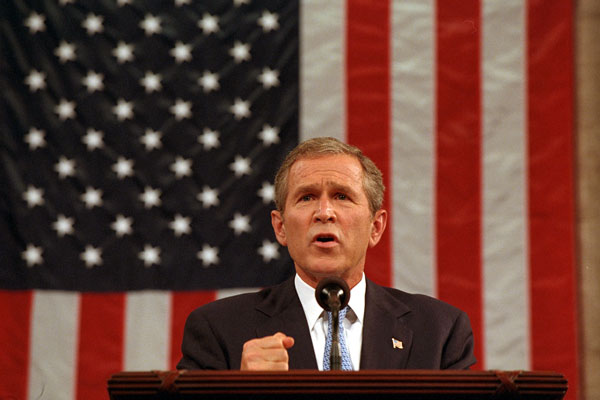On October 7, 2001, the world watched as the United States launched an invasion of Afghanistan and a “War on Terror.” This marked the beginning of Operation Enduring Freedom, a military campaign in response to the devastating September 11th terrorist attacks. The attacks, carried out by the extremist group al-Qaeda, were some of the deadliest in history and shook the world. The goal of the invasion was to dismantle al-Qaeda and remove the Taliban regime that had given them a safe haven.
Interesting Facts:
- The U.S. invasion of Afghanistan was named Operation Enduring Freedom. It was launched on October 7, 2001, in response to the September 11 terrorist attacks orchestrated by al-Qaeda.
- The primary goals were to dismantle al-Qaeda, which was responsible for the attacks, and to remove the Taliban regime from power, which was providing safe harbor to the terrorist group.
- The operation began with a series of coordinated airstrikes against Taliban and al-Qaeda positions. The initial phase focused on targeting critical infrastructure and military capabilities.
- A coalition of international forces supported the invasion, with the significant endorsement of the United Nations. NATO allies played a crucial role in the subsequent operations, further strengthening the legitimacy of the action as a response to terrorism.
- Following the airstrikes, U.S. and allied ground forces entered Afghanistan in late 2001. The swift military campaign led to the rapid fall of the Taliban regime, marking an initial success, though the conflict continued for many years.
- The invasion marked the beginning of a prolonged military engagement in Afghanistan, which lasted nearly two decades. This conflict significantly reshaped U.S. foreign policy, military strategy, and global counterterrorism efforts. It led to a reevaluation of the U.S.’s role in the world, a shift in military tactics, and a renewed focus on combating terrorism globally.
- The war in Afghanistan resulted in significant human and economic costs. Thousands of military personnel and civilians lost their lives, and the conflict had a profound effect on the region’s stability and development.
- The October 7 invasion set the stage for subsequent military and political developments in the Middle East and South Asia and significantly shaped the course of 21st-century geopolitics and international relations, impacting the global community.

